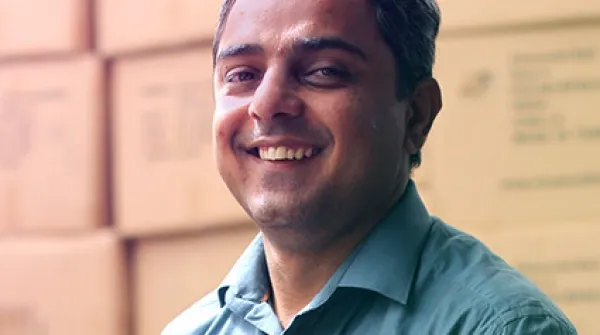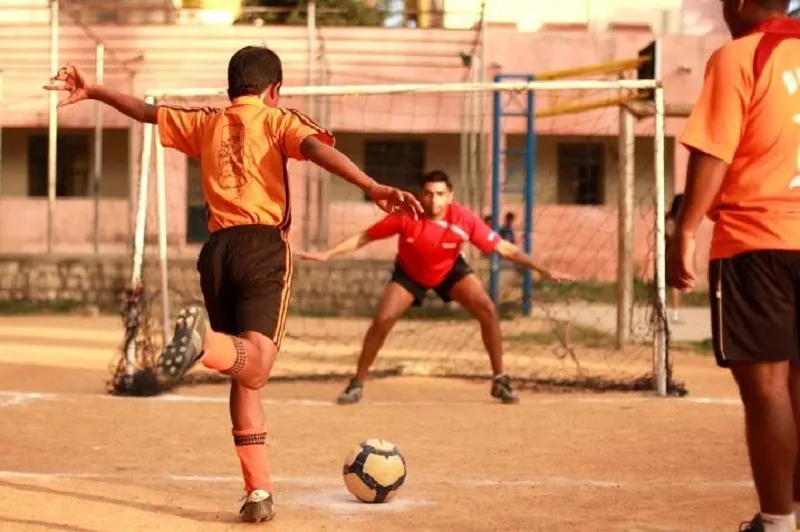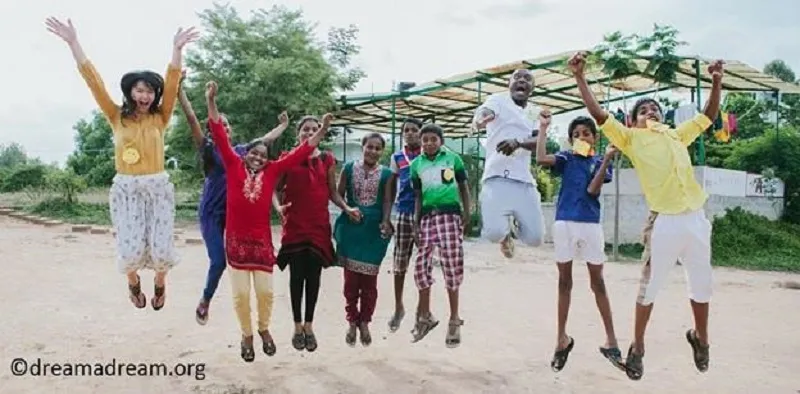How this 17-yr-old organisation aims to impact 2.5 lakh children by end of 2016
The journey started with questioning a simple childhood memory—
Why wasn’t I allowed to play with street children?
and it led this investment banker to plunge into the area of childhood development. After an extensive research lasting a few years, in 1999, Vishal Talreja co-founded Dream A Dream.

A Bengaluru-based non-profit, it focuses on empowering children from vulnerable, at-risk backgrounds with life skills that are critical to constructively engage with the world, make healthy choices and flourish. Vishal’s approach is conducting after-school sessions utilising the medium of sports and arts, and imparted by teachers who have undergone Dream A Dream’s researched and tested teacher development programme. This is further topped up by career awareness workshops. Today, its programmes are impacting the lives of over 60,000 children each year.
Vishal says,
Dream A Dream is about empowering young people to take charge of their lives, take risks and negotiate. I began to wonder how they will be able to do that unless my facilitators believe in themselves to do the same. If my facilitators don’t have the right life skills to resolve a conflict with integrity, how can they empower these children from at-risk backgrounds to make healthy choices? And, we are talking about impacting 60,000 children every year.

So, in 2009, the realisation set in that a restructuring was required if the organisation needed to deepen its impact as well as scale. The process lasted almost 18 months. In the new Dream A Dream, this is what was different –
- The ‘People Philosophy’ document – Emerging out of engagements with all stakeholders (staff, children and young people, partner schools and donors), the organisation came up with three underlying value systems –based on dignity, accountability and trust –
- Dignity isn’t defined by the money earned or the position held because everyone is equal in all aspects and must be treated so.
- An employee should trust themselves as well as their colleagues to do a good job for the respective roles they have taken up.
- All employees will hold each other “constructively accountable” for the goals they set out to achieve “without any hierarchy”
- Entry, exit and holiday policies – Employees can walk in and walk out anytime they wish to. They are allowed unlimited casual leaves, limited to a single day, without seeking approval from their managers. Vishal says, “This particular system comes from the understanding that there is a life beyond work. Of course, many were sceptical that this kind of freedom will be abused, but we came in form a space of trust wherein we believed that as adults, if we misuse our rights, we will naturally be unable to achieve our goals and will have to hold ourselves accountable.”
- Delinking performance and salary hike – Every individual in the organisation is eligible for a salary hike in a pre-determined percentage once a year. Subsequently, they are also eligible for a higher role, provided they feel they can take up the challenge. However, in order to move up to the next role, a full-fledged annual plan has to be chalked out which has to be approved by the HR team, which is again a choice-based team incorporating people from different teams and levels. This completely eliminated negative competition because each employee is on their own curve.
- The new role of managers: Vishal says, “A lot of managers questioned their role and inability to give feedback. But that’s a false sense of power; it’s authority in a sense. In the new system, they have the responsibility of building a learning journey for them. This meant that they are moving from ‘you’re not good at this’ to supporting them to reach their maximum potential. The entire equation has positively shifted.”
How did this restructuring help? Vishal says,
Since employees are living these values, they are able to role-model the same culture into a classroom session with 30 children. The relationship is no longer of authority, but one based on equal footing and negotiation, which come from a space of dignity. It’s dialogue, essentially.
In 2014, in an impact assessment on 3,081 children, the organisation found out that 78.84 percent of the children displayed positive improvements across five areas – interacting with others, overcoming difficulties and solving problems, taking initiative, managing conflict, understanding and following instructions.

Dream A Dream has now embarked on a mission to impact 2.5 lakh young people by the end of 2016. And with the right team and life-skills in place, there is little doubt about them accomplishing that.
Read More –
7,000 children in Pune schools didn’t want the Maharashtra drought to worsen. Here’s how they are helping
This 9-year-old girl runs a library for slum children in Bhopal
This young singer has helped treat 800 children suffering from heart disease







